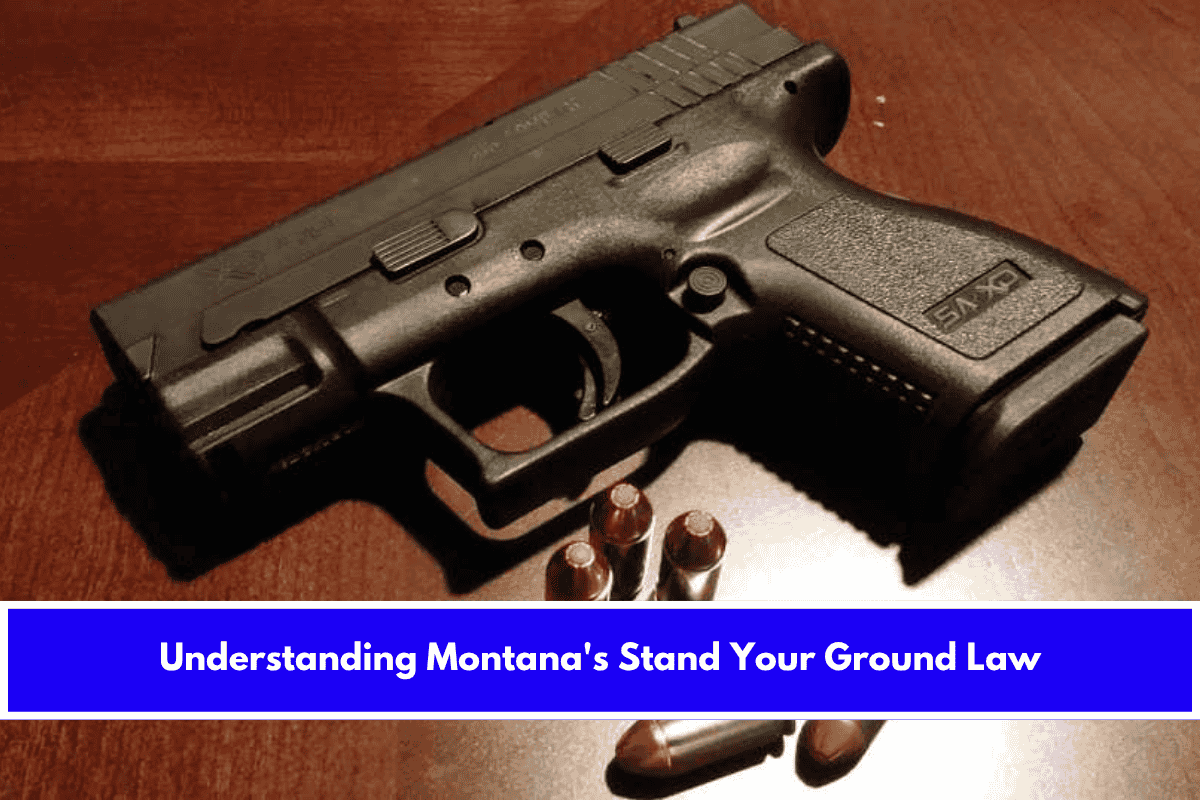A “stand your ground” law allows individuals to use force, including deadly force, in self-defense without a duty to retreat, as long as they are in a place where they are lawfully present and reasonably believe such force is necessary to prevent imminent death or serious bodily harm. This is distinct from “duty to retreat” laws, which require a person to avoid confrontation if safely possible before using force.
Montana’s Stand Your Ground Statute
Montana has a clear stand your ground law, meaning:
- No Duty to Retreat: You are not required to retreat before using force in self-defense, whether you are in your home, workplace, vehicle, or any public place where you are legally allowed to be.
- Reasonable Belief Required: The law only protects you if you reasonably believe that using force is necessary to prevent imminent death or serious bodily harm to yourself or another.
- Proportional Force: The force used must be proportional to the threat faced. Deadly force is only justified in extreme situations, such as preventing a violent felony or home invasion.
- Not a License for Violence: The law does not permit the use of force for minor disputes, retaliation, or by someone who initiated the conflict.
Where Does the Law Apply?
Montana’s stand your ground protections apply:
- In your home (Castle Doctrine)
- In your workplace or vehicle
- In any public or private place where you are lawfully present (e.g., parks, streets, businesses)
Limitations and Legal Considerations
- You must be lawfully present: The law does not protect trespassers or those committing a crime at the time of the incident.
- You cannot be the aggressor: If you started the confrontation, stand your ground protections generally do not apply.
- Reasonableness is key: Courts will evaluate whether your belief in the threat and your response were reasonable under the circumstances.
Effects and Controversy
Research indicates that stand your ground laws may be associated with increased homicide rates and have not been shown to deter violent crime. These laws remain controversial for their potential to escalate conflicts and for how they are applied in real-world cases.
Summary Table
| Feature | Montana Stand Your Ground Law |
|---|---|
| Duty to Retreat | No, if lawfully present |
| Applies in Home (Castle) | Yes |
| Applies in Public | Yes, if lawfully present |
| Must Be Reasonable | Yes, threat must be imminent/severe |
| Aggressor Protected? | No |
| Use of Deadly Force | Only if threat is imminent/severe |
Montana’s stand your ground law allows you to defend yourself with force, including deadly force, without retreating—if you are lawfully present and reasonably believe it is necessary to prevent imminent harm. However, you must act reasonably, not be the aggressor, and use force proportionate to the threat.
Sources:
- https://en.wikipedia.org/wiki/Stand-your-ground_law
- https://giffords.org/lawcenter/state-laws/stand-your-ground-in-montana/
- https://www.ncsl.org/civil-and-criminal-justice/self-defense-and-stand-your-ground
- https://citizenportal.ai/articles/2454132/Montana/Montana-lawmakers-introduce-bill-to-protect-self-defense-rights-and-cover-legal-costs











Leave a Reply